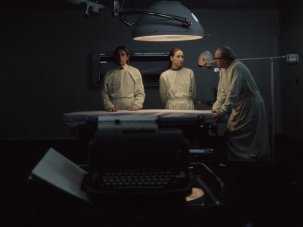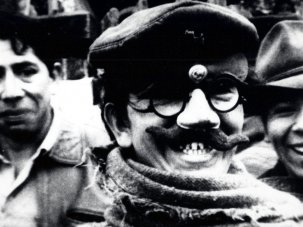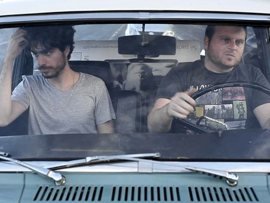from our March 2013 issue
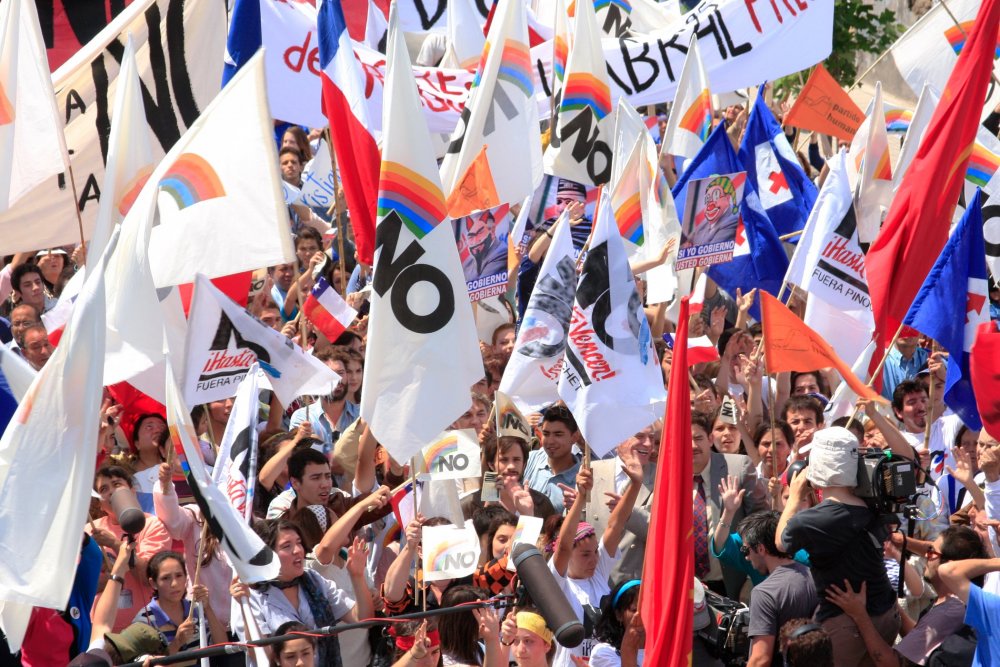
When Pablo Larraín’s second feature, Tony Manero, was released in 2008, it was a bolt from the blue, a rare film about Chile’s dictatorship from an industry still shy of the subject, made by a director who was only 12 when the regime ended. Yet here he was, sticking a discomforting probe into the old wound.
| Chile/USA/France/Mexico 2012 Certificate 15 117m 43s Crew Cast Dolby Digital Distributor Network Releasing |
He didn’t stop there. Four years later, Larraín has completed a diverse and extremely accomplished trilogy on the Pinochet era. With Tony Manero he presented a surreal perspective on life in the thick of repression; in Post Mortem (2010) he cast back to the regime’s beginning, the coup itself; and now, with No, he looks to its unexpected demise.
In keeping with the more upbeat theme, this is the closest yet that Larraín has made to a crowd-pleasing movie and as such it bears an interesting resemblance to Ben Affleck’s recent Argo, which focused on the little-known story behind the 1979 Iranian hostage crisis; drawing considerable humour from the outlandish subplots of history, both are exemplars of politically engaged yet feelgood filmmaking.
Larraín recognises that Pinochet laid the seeds for his own downfall when he brought market-driven economics and their social ramifications to Chile. When we first meet the film’s central character, ad executive René Saavedra (Gael García Bernal), he is pitching a TV commercial for a soft drink called, with brilliant irony, Free. Whether he’s selling pop, microwaves or a new soap opera, René opens a pitch in the same way, explaining that it is “in line with the current social context” and that “today, Chile thinks of its future”. His cynicism applies to his private life: when he wants to get a kiss out of his radical ex-wife, he simply utters the word “Allende”. Don Draper might have sharper suits, but René’s lack of scruple would make the Mad Men proud.
The No campaigners who seek René’s help in the run-up to the 1988 referendum want to speak of murder, torture, exile and poverty. They’re horrified when René insists that the country’s misery “won’t sell”. The genius of the campaign he devises is that it applies the traditionally frivolous tools of advertising – jingles, song-and-dance numbers, comedy – to overthrow a dictator.
Not that the skateboarding René (he is an amalgam of two real-life figures who were instrumental in the 1988 campaign) is an easy person to read. It’s tempting to believe that this son of a dissident, once exiled himself, has chosen apathy as an escape from a painful past, and has now found his better political instincts aroused by the No campaign; yet we’re never quite sure whether René’s motivations run deeper than a professional’s love of a challenge. The casting of Bernal is astute: the poster boy for Latin American cinema sweetens the pill of another story about the dictatorship while mining the ambiguities of his character and so keeping the film honest.
Adapting the stage play Referendum, Pedro Peirano, who co-scripted the fabulous 2009 black comedy The Maid, provides another subtle, dense, playful screenplay. In keeping with the sheer jolliness of the No campaign (and as if applying René’s maxim, “a little lighter, a little nicer”), his comic tone is less twisted, much less dark than in Larraín’s earlier films.
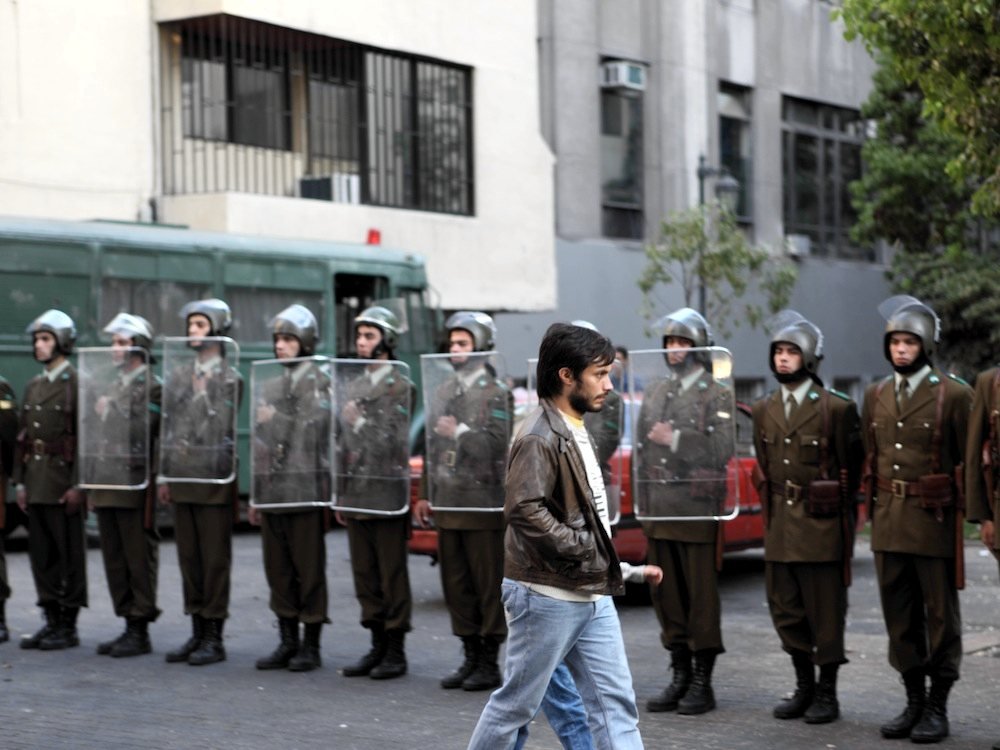
At the same time, we’re left in no doubt as to what is at stake. People are constantly speaking in whispers; René and his colleagues are stalked by men in unmarked cars; René’s home is broken into. The very presence of Alfredo Castro, who played the sinister lead characters of Tony Manero and Post Mortem and who is firmly in the Yes camp here, reminds us of the world the No campaigners wish to escape. Much of the upbeat vibe is due to our witnessing a country coming out of the shadows.
In a stylistic masterstroke, Larraín and his regular cinematographer Sergio Armstrong shot the film with a 1983 U-matic video camera, leaving little difference between the archive footage and the new material. This, along with the excellent production design, results is a near-seamless stylistic whole that draws us into the period.
More complex is the use of real figures from the campaign, notably its anchorman, playing themselves; we see them as they prepare for René’s cameras – before Larraín cuts to actual broadcasts featuring their younger selves. As well as allowing a homage to these protagonists, the device denotes the film’s artifice and, by extension, the artifice at play on both sides of the campaign.
Larraín’s contemporary perspective ensures that the happy ending is not unconditional. René’s ambiguous response to the victory, his return to Guzmán, remind us that Chile’s problems – the economic, social and cultural consequences of Pinochet’s rule – did not end overnight. But for now the director allows his compatriots to bask in some remembered sunshine.
In the March 2013 issue of Sight & Sound
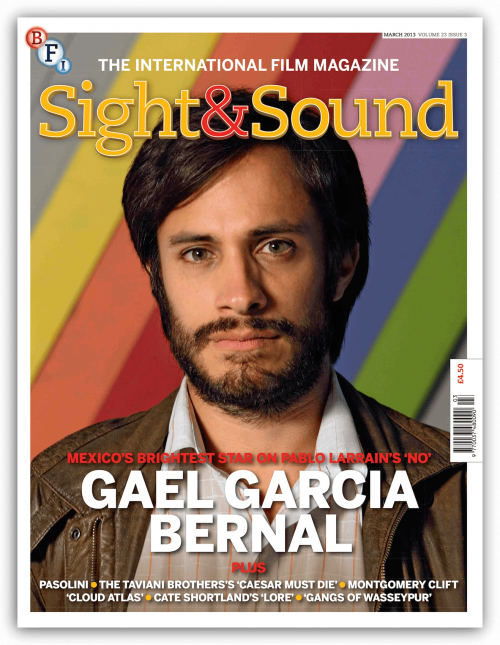
The future is No
With his new film No, Pablo Larraín returns to Chile under Pinochet’s rule for the third time, but this portrait of an advertising campaigner who sells the rejection of Pinochet the same way he sells cola is more about the dynamics of community action than a hymn to a loner. Interview by Jonathan Romney.
Gael García Bernal
For the Mexican star of No, the blending of documentary and fiction represents an abiding preoccupation. Interview by Mar Diestro-Dópido.
Mad men in the movies
When the protagonist of a film works in advertising, the chances are he won’t be represented as a pillar of integrity, and moral compromise will be the order of the day. By Kim Newman.
-
Sight & Sound: the March 2013 issue

Gael Garcia Bernal in Pablo Larraín’s No, plus Caesar Must Die, Somersault, Pier Paolo Pasolini and Montgomery Clift.
-
The Digital Edition and Archive quick link
Log in here to your digital edition and archive subscription, take a look at the packages on offer and buy a subscription.




